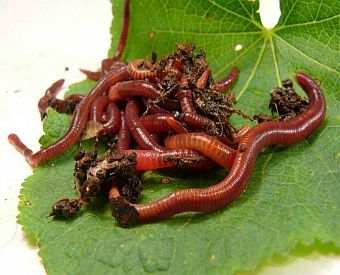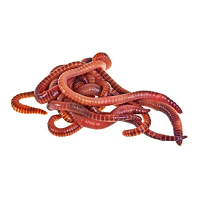Top red worms: Everything you need to know
Top red worms: Everything you need to know
Blog Article
Why Red Wigglers Are Important for Natural Farming
Red wigglers play a critical duty in natural farming, mainly with their special ability to decay natural products and enhance soil health and wellness. Their task not just enriches the soil with crucial nutrients however likewise cultivates a thriving ecosystem important for sustainable agriculture. The physical processes they involve in, such as aeration and dampness retention, contribute dramatically to enhanced crop returns. However, the degree of their effect on agricultural methods and dirt biology elevates appealing questions concerning the future of natural farming. What implications might this have for farming approaches?
Duty of Red Wigglers in Soil Health

In addition, red wigglers improve dirt structure by creating channels as they burrow. These channels enhance oygenation and water infiltration, advertising a healthier origin atmosphere. Their task also helps in preserving optimum dampness degrees, which is vital for healthy and balanced plant development.

Benefits of Worm Castings
Worm castings, the nutrient-rich waste matter generated by red wigglers, work as a powerful modification for chemical-free farming. These castings are teeming with necessary nutrients such as nitrogen, phosphorus, and potassium, which are important for plant development. Unlike synthetic plant foods, worm castings launch nutrients slowly, providing a constant supply gradually and reducing the threat of nutrient leaching and overflow.
Moreover, worm castings improve soil framework and aeration, advertising healthier root systems. Their high organic issue material improves dampness retention, enabling plants to better withstand drought conditions. Furthermore, worm castings consist of valuable microorganisms that support plant health and wellness by reducing virus and enhancing vitamins and mineral uptake.
The application of worm castings can lead to raised crop yields and enhanced quality of produce, making them an invaluable resource for organic farmers. Their usage also lines up with lasting farming techniques, adding to soil fertility without the negative environmental effects connected with chemical plant foods. Overall, the consolidation of worm spreadings right into agricultural methods promotes an extra resilient and efficient ecosystem, underscoring the significance of red wigglers in organic farming systems.

Enhancing Nutrient Cycling
(red wigglers for sale near me)Nutrient cycling is an important process in organic farming, and the combination of red wigglers plays a crucial duty in boosting this cycle. As red wigglers eat decaying organic matter, they secrete nutrient-rich spreadings, which are bristling with beneficial microorganisms.
Furthermore, red wigglers help to speed up the mineralization of nutrients, transforming them from inert types into bioavailable types that plants can soak up. This process is vital for keeping soil fertility and advertising healthy plant growth. The presence of red wigglers likewise motivates a varied dirt ecological community, fostering a balance of nutrients that supports numerous plant species.
Improving Dirt Framework
The improvement of soil structure is crucial for promoting a healthy agricultural ecosystem, and the activity of red wigglers considerably contributes to this improvement. These earthworms play a vital function in aerating the soil and developing a network of networks that promote water seepage and root penetration. As they burrow via the dirt, red wigglers separate compacted layers, enabling much better oxygen exchange and promoting microbial task.
In addition, the natural matter created from their waste, called vermicast, improves dirt gathering. This process develops steady clumps of dirt particles, improving dirt porosity and reducing disintegration (red wigglers). The existence of red wigglers also encourages the growth of beneficial fungal networks, which are critical for nutrient uptake more helpful hints by plants
Supporting Sustainable Practices
Integrating red wigglers right into chemical-free farming techniques not only enhances dirt wellness however also advertises lasting agricultural approaches. These earthworms play a vital function in nutrient biking, transforming natural waste into beneficial garden compost that enhances the soil. By utilizing red wigglers, farmers can effectively reduce dependence on artificial fertilizers, thereby decreasing chemical runoff and its damaging impacts on communities.
Furthermore, the unification of red wigglers motivates the practice of recycling natural materials, such as kitchen area scraps and ranch waste. This waste reduction method not only decreases disposal expenses but additionally promotes a closed-loop system where nutrients are constantly returned to the dirt (red wigglers). Such practices are necessary in reducing environment change, as they improve carbon sequestration and lower greenhouse gas discharges
In addition, red wigglers boost water retention in the soil, which is critical in times of dry spell. Their burrowing tasks create channels that allow water to pass through deeper into the ground, therefore promoting efficient water use. Ultimately, integrating red wigglers right into organic farming not only sustains biodiversity but also lines up with the principles of sustainable farming, offering an alternative strategy to food manufacturing.
Conclusion
In conclusion, red wigglers play an essential role in organic farming by considerably enhancing soil wellness and fertility. Hence, the assimilation of red wigglers right into agricultural practices is vital for advertising sustainability and boosting general dirt high quality.
Report this page